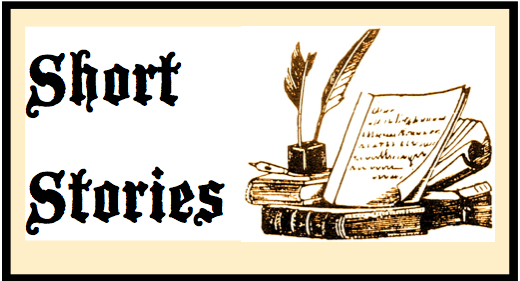A Word from the Judge
As promised in my last post, below is a short text by Atthys Gage, who will be judging the Book a Break Short Story Competition (deadline 15th February). The short story form, as he says, is indeed a difficult one to master. But he includes some great examples, some of which I’ve not read myself. Worth checking out!
Surprise me
Short stories intimidate me.
I’ve written seven novels over the last eight years. Not all are ready (or even close to ready) for the editor’s ruthless blue pencil, but they’re complete. And they are substantial things, averaging about 80,000 words each. In that same time, how many short stories have I written?
Four.
Right, four. Because short stories are harder. For me anyway. A good short story can do everything a novel can do: drop you into another world; give you characters that you sympathize with; give you a story that you care about and an ending that stays with you long past the turning of the last page. But a good short story doesn’t need 80,000 words to do it.
A Perfect Day for Banana-Fish only requires 4,009 words. A Cask of Amontillado, a mere 2,495. The Gift of the Magi is only 2,163. Little Things, by Raymond Carver, 499.
Curtis and I set the limit for this contest at 2,000 words. I don’t envy you your task. That’s about eight pages, double-spaced. A helluva a lot can happen in eight pages. Or hardly anything at all.
Let’s admit one thing. You may need to ignore everyone’s favorite writing tip: “show, don’t tell”—or at least, take it with a grain of salt. Telling is okay, just tell it well. Sometimes it’s necessary. You need a quick set up to get the reader involved quickly, because in a very few pages, you’re going to pull a fast one, yank our expectations out from under our feet, drop us abruptly on our backsides. Consider The Open Window by Saki, or The Lottery by Shirley Jackson, or The Nine Billion Names of God by Arthur C. Clarke.
Or maybe your story doesn’t feature a last minute reversal. Maybe it’s all one slow-burn, building to a frantic boil. Think Young Goodman Brown by Hawthorne, or A Good Man is Hard to Find by Flannery O’Connor. These stories play with our expectations, but you can see the ending coming. By the time it comes, you know it was inevitable all along.
I’ve barely scraped the surface. Read A Very Old Man with Enormous Wings by G.G. Marquez. Or The Hunger Artist by F. Kafka. Read Aye, and Gomorrah by Samuel R. Delany. Read any of a dozen great stories by James Tiptree Jr, and anything at all by J.L. Borges.
Or someone else. I mean, you probably have your own favorites. In the words of Bo Diddley, “Who do you love?”
And really, if your story goes a little over 2,000 words, don’t sweat it too much. I wouldn’t stop reading The Tell-Tale Heart or The Secret Miracle just because they broke the 2K barrier, and I won’t stop reading yours either—if I can’t. Make it so I can’t stop, and you’ve got nothing to worry about.
And Curtis is right. There is no formula. And like I said, a helluva a lot can happen in eight pages. Or hardly anything at all.
Advice? Okay. Write well, of course, but also? Be outrageous. Be subtle. Be ambiguous. Be straight-forward. Be fantastic. Be enigmatic. Be everything at once.
Surprise me.



It’s worth to enter just for the signed copy of One Green Bottle 🙂
LikeLiked by 2 people
Ah, that’s nice, Tammy – thanks!
LikeLiked by 1 person
Glad that Atthys remarked on the downside of SDT. Showing tends to take longer than telling. When there is not much time to spare, telling well may be better than showing for some aspects of a story.
LikeLiked by 1 person